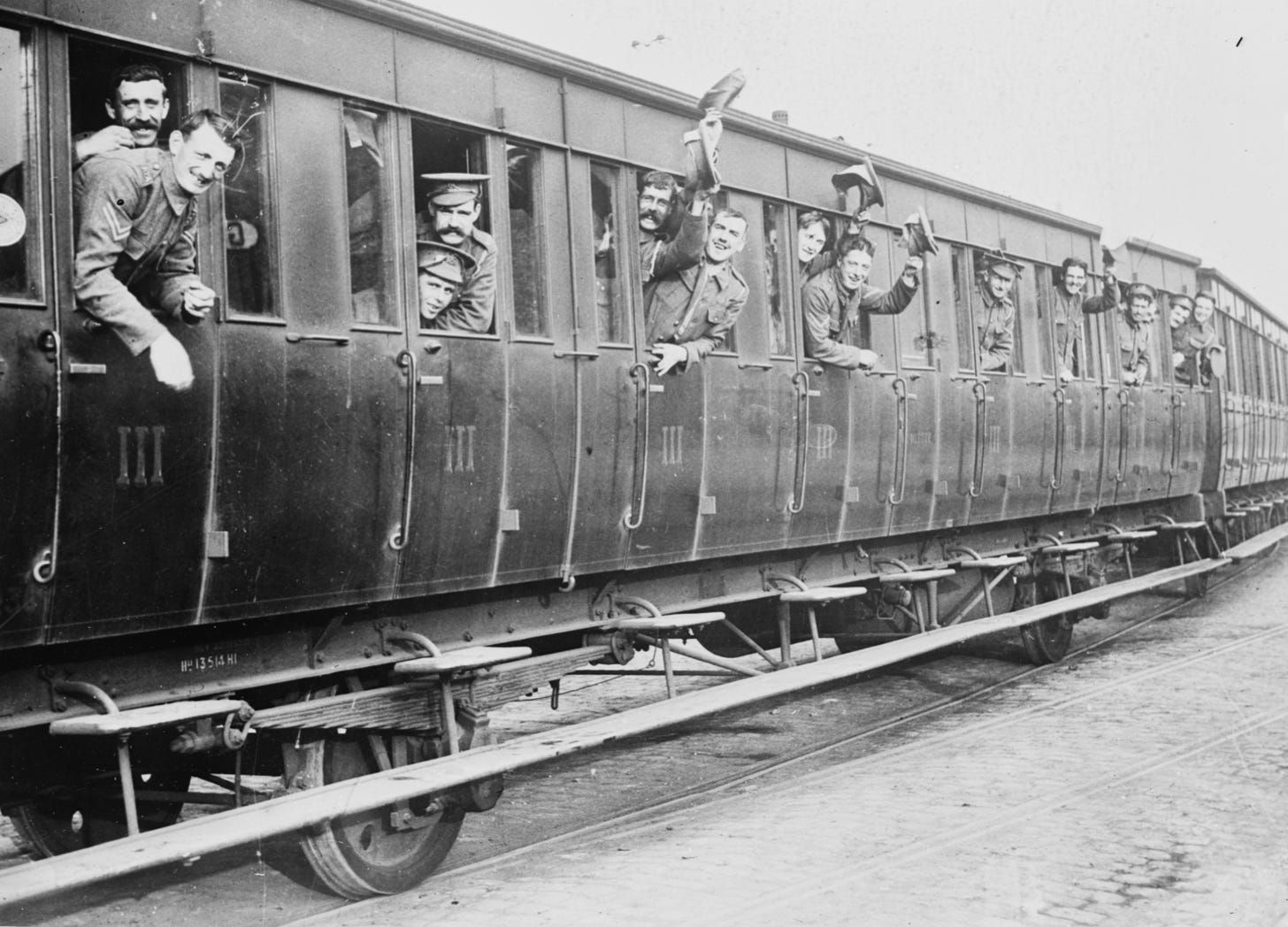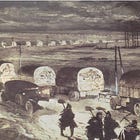What if Britain Goes to War?
The Great 'What If' of 1914
In the four posts of the main body of this series, I presumed that, had Germany refrained from invading Belgium, Great Britain would have stood aloof from the war that broke out in August of 1914. I also presumed that, eager to preserve both France and Russia from catastrophic defeat, the British government would pushed for peace as soon as it became clear that the French and Russian invasions of Germany had failed. Nonetheless, while I think that German forbearance in the West would easily lead to such an outcome, a British declaration of war against Germany, while far from probable, would not have been out of the question.
The first operational outcome of a British declaration of war would have been a naval blockade of German ports. While this would have had little immediate effect on the food supply of Germany, it would have increased German interest in the conquest of grain-producing parts of the Russian Empire. The seizure of German ships with American cargos, and the diversion of American ships from their intended ports of call, would also have led to tension between the United States and Great Britain.
Here in the real world, American indignation over the the blockade had to compete with reports of German misbehavior in Belgium. However, in the scenario laid out by Hermann Staabs, the only atrocity stories in the American press would describe crimes committed by Cossacks in East Prussia. This, at the very least, would complicate attempts by the French, Russian, and British governments to obtain loans organized by American banks. It might also diminish Canadian enthusiasm for the Imperial war effort.
Unless the Kriegsmarine did something stupid, like bombard British sea-side towns, the great rush to the colors that took place in our own time line would not have been as rapid or as great. The unemployment resulting from the disruption of trade and fear of a German invasion may have resulted in a considerable increase in enlistments, particular in the mobilized Territorial Force. I suspect, however, that a much smaller proportion of these wartime volunteers, however, would have opted up for "Imperial Service.”
The Expeditionary Force would have been ready for dispatch to the Continent within days of the outbreak of war. However, in the absence of a German invasion of Belgium and France, it would have had little reason to cross the English Channel. Thus, much of the Regular Forces would have spent the first two or three months of the war in its garrisons in Great Britain and Ireland, preparing for such unlikely contingencies as a landing on Germany’s North Sea coast.
For Further Reading:
To Support, Share, or Subscribe:







